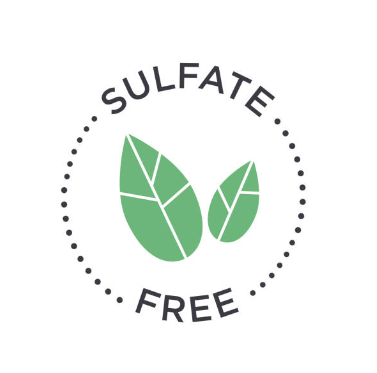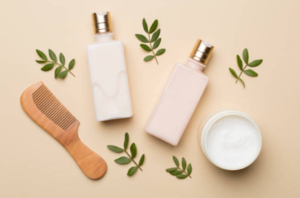

Scalp irritation


For many beauty enthusiasts, navigating the shampoo aisle can feel like stepping into a minefield. One of the most debated ingredients on the label? Sulfates. Often demonized as the culprit behind dry hair and irritated scalps, sulfates have been cast as the villain in the quest for healthy hair. But is this reputation entirely deserved? This informative guide dives into the science behind sulfates, explores the “sulfate-free” revolution, and empowers you to make informed choices for your unique haircare needs.
Sulfates are a group of cleansing agents commonly found in shampoos. Their primary function is to create lather, the satisfying foam we associate with a clean scalp. Sodium Lauryl Sulfate (SLS) and Sodium Laureth Sulfate (SLES) are the most widely used sulfate players in the shampoo game. While they excel at removing dirt, oil buildup, and styling product residue, concerns have been raised about their potential to be harsh and stripping on the scalp and hair.
However, it’s important to understand that formulation plays a crucial role. Reputable brands carefully balance the cleansing power of sulfates with conditioning agents and other ingredients to minimize any potential harshness.
The rise of the “sulfate-free” movement has seen a surge in shampoos reformulated with gentler alternatives like coco-sulfates or betaines. These milder cleansers can be a good option for those with sensitive scalps or color-treated hair, as they may be less likely to cause irritation or color fading.
However, it’s important to remember that “sulfate-free” doesn’t necessarily equate to “better” for everyone. Sulfate-free shampoos often have a lower lathering effect, which can be a dealbreaker for some. Additionally, they might not be as effective at removing buildup from heavy styling products.
While sulfates might be a convenient scapegoat for hair woes, the real culprits behind dryness, breakage, and irritation can often be:
Here are some scenarios where opting for a sulfate-free shampoo might be beneficial:
There’s no one-size-fits-all answer in the sulfate debate. Both sulfate and sulfate-free shampoos have their pros and cons:
Sulfate Shampoos:
Sulfate-Free Shampoos:
The key to navigating the debate lies in understanding your individual haircare needs and preferences. Consider your hair type, scalp sensitivity, styling habits, and desired level of lather when making your choice.
Even with the information provided, some lingering questions about sulfates might remain. Here are some of the most frequently asked questions regarding sulfates in haircare:
Sulfate-free shampoos can be a good option for most hair types, especially those with sensitive scalps or color-treated hair. However, if you have fine or oily hair, a low-sulfate shampoo might be a better choice, as completely sulfate-free formulas might not be as effective at removing buildup.
While sulfate-free shampoos might not create the same level of lather as traditional sulfate shampoos, they can still effectively cleanse the scalp and hair. The key lies in lathering the shampoo for a longer duration and ensuring a thorough rinse.
Absolutely! There’s no harm in using both sulfate and sulfate-free shampoos in your haircare routine. For example, you might choose to use a sulfate shampoo for a deep cleanse once a week, followed by sulfate-free shampoos for the rest of the week.
Several gentler cleansing agents are used in sulfate-free shampoos, such as coco-sulfates, betaines, and glucoside derivatives. These alternatives can effectively cleanse the hair while being milder on the scalp.
Lather doesn’t necessarily equate to a cleaner scalp. Sulfate-free shampoos can still cleanse effectively, even without a significant lather. Focus on how your scalp and hair feel after using the shampoo, rather than the amount of lather it produces.
The quest for healthy hair goes beyond simply choosing a sulfate-free or sulfate-containing shampoo. A holistic approach that incorporates gentle cleansing, proper conditioning, and healthy lifestyle habits is key.
By adopting a comprehensive haircare routine that addresses your individual needs and prioritizes gentle cleansing, balanced ingredients, and healthy lifestyle habits, you can cultivate beautiful, healthy hair that thrives, regardless of the sulfate content on the shampoo label.
Sustainable Shades For many DIY enthusiasts and design aficionados, a fresh coat of paint is…
Cruelty-Free Solutions for a Healthier You Chronic inflammation can be a relentless foe, disrupting our…
Unleashing Your Brain's Potential In today's fast-paced world, maintaining sharp mental focus and cognitive agility…
Exploring DIY Organic Makeup Fixers For the eco-conscious beauty enthusiast, the quest for flawless makeup…
A Sensitive Exploration The clean beauty movement has taken the beauty world by storm. Consumers…
Taming the Mane Frizz – the bane of smooth hair dreams. It can transform a…
This website uses cookies.